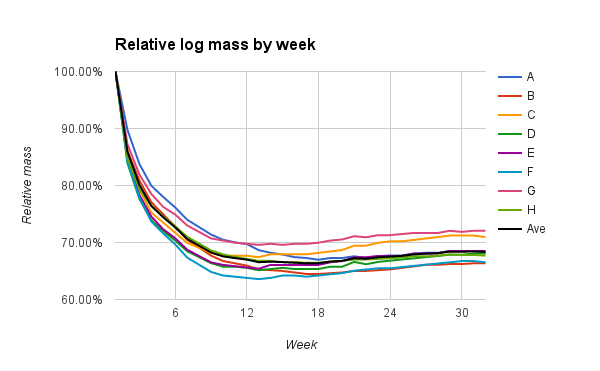
Our attention has been caught by a little experiment that promises to give an insight into the wood seasoning process.
As we regularly mention on this blog, it is important for the well-being of your woodburner and the efficiency of your fuel use that all logs are fully seasoned before burning them. The easiest way to check this is by buying a moisture meter to measure the water content in a log.
Robert Pumphrey has opted for a slightly more laborious process that continues to garner some interesting results. Rather than use a moisture meter, Robert has deployed his humble kitchen scales to regularly weigh a sample of logs. He is working to a hypothesis that when his logs stop losing mass, they will be ready to burn (because this will suggest that all or most of the moisture in the log has evaporated).
This approach is probably not manageable as a preferred method of checking your wood is seasoned, but it does provide some interesting data on the seasoning process.
Robert used just eight logs as a sample for the experiment. He took weekly measurements of the mass of each log, then recorded his results.
He quickly discovered just how much water a log holds and also learnt why we recommend seasoning logs outside under a covered but open-sided structure.
Summarising his observations to date, Robert said:
Logs contain a lot of water. If you have 100kg of fresh logs in your shed, that may be around 35 litres of water
When you fill a shed with fresh logs, you can expect a significant volume of water condensing on the roof. Perhaps it makes more sense to dry logs outside first if you have the space
Logs put on mass when the weather is not very warm, get your logs in the shed by April if you need to use them next winter
I want to keep tracking this set of logs to see if they lose a significant mass of water on their second summer in the shed.
You can see a graph of Robert’s findings to date above.
If weekly weigh-ins are not for you, you can use a moisture meter instead. We’ve previously calculated that using a moisture meter can save you up to £206.55 each time you burn a tonne of wood.



